Is the National Firearms Act of 1934 (NFA) Unconstitutional? Many of us believe so. A new motion in an existing case raises that question, but the motion’s provenance seems misunderstood. Despite the hoopla, the motion’s purpose is not to overturn the NFA, though it challenges the NFA’s Constitutionality. Florida attorneys Zachary Zermay and Matt Larosiere filed the new motion in defense of Matt Hoover in his court battle against the ATF. The recent Supreme Court Bruen Decision prompted the motion.
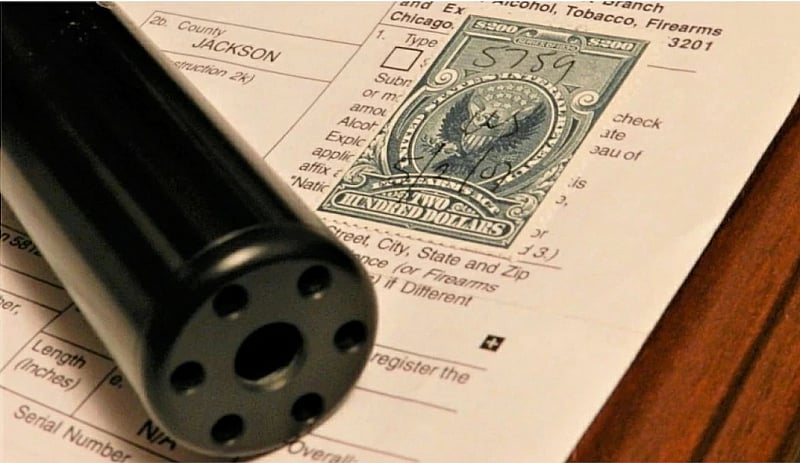
Who is Matt Hoover?
You may recognize Hoover from his YouTube Channel, CRS Firearms. The ATF raided Hoover’s home in January 2022 because he made videos talking about an “auto keycard.” This keycard is a piece of steel etched with outlines of an auto sear, a key component to a machine gun or automatic rifle. The keycard was manufactured by an outside company that previously asked Hoover to advertise it on his channel.
Hoover checked the card’s legality with ATF, who told him that the card was not illegal. He then included the card in several videos. The agency then arbitrarily changed its mind on the card. The ATF arrested Hoover and charged him with possessing an illegal “machine gun.” He faces several years in prison if convicted.
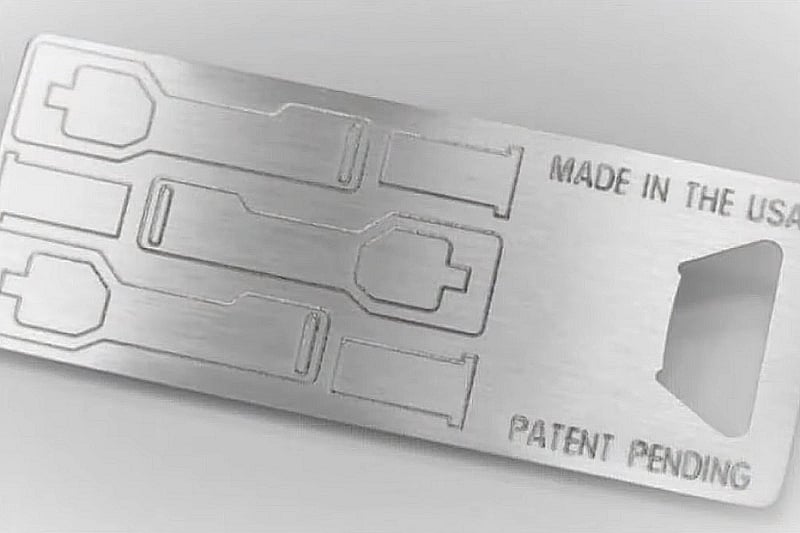
Ex Post Facto
Hoover’s case is an example of an ex post facto government action. Essentially, the government makes something illegal, then charges someone, Hoover in this case, with illegal activity, despite his being in full compliance before the change. It’s illegal and immoral, but that’s what government agencies like ATF do.
Even worse, ATF makes rules that carry the weight of federal law, despite being an unelected executive bureaucracy. As Zermay and Larosiere recently noted, “The government has the duty to inform you [of] what is and is not illegal.” They argue that ATF neglected that duty by arbitrarily changing a rule and arresting Hoover without informing him of the change.
Federal agencies have long operated this way. Recent Presidents have used those agencies to expand the Executive Branch’s power at the Legislative Branch’s expense. Congress has largely abdicated that power for political reasons. Senators and Representatives are happy to dodge contentious issues, enabling them to avoid taking controversial stands that will be used against them come election time.
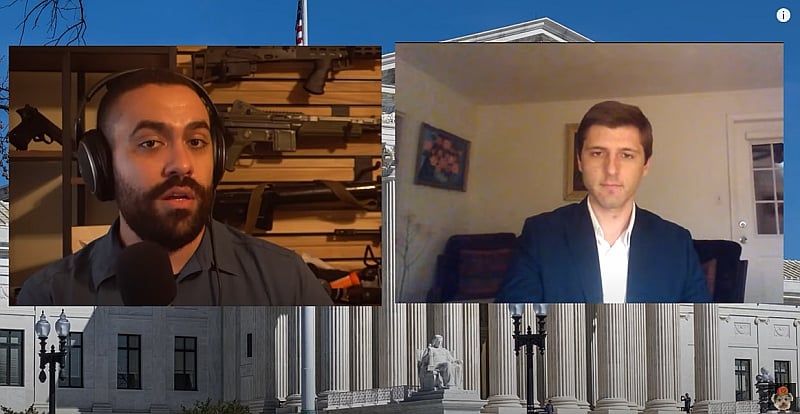
The recently decided West Virginia vs. EPA case will hopefully rein in this trend and force Congress to actually do their jobs. Hopefully. Never underestimate a politician’s slipperiness. I’m reminded of a favorite movie quote: “One useless man is a disgrace. Two useless men are a law firm, and four or more are a Congress.” Here’s hoping Zermay and Larosiere disprove the quote’s second assertion.
The New Motion: What it Is
Zermay and Larosiere are clear that their goal is Matt Hoover’s acquittal, as it should be. That goal may or may not affect the NFA’s long-term viability. Several commentators have focused solely on the defense strategy of questioning the NFA but have erroneously implied that striking the law down is the main goal.
Some have claimed the case could repeal the NFA. That is also incorrect. Larosiere points out that a repeal is a legislative process, not a legal one. The NFA could possibly be declared Unconstitutional but that is not the goal. The NFA challenge is a tool by which to obtain Hoover’s acquittal.
What is the NFA?
Warning: there is some graphic historical imagery below.
The National Firearms Act of 1934 is not a ban on certain weapons, like machine guns or short-barreled rifles and shotguns. It is a tax system that allows the government to criminally charge individuals for not paying the tax. A recent example of this tactic is the now-infamous classification of the individual mandate requirement of Obamacare as a tax, not a penalty. The Feds have never met a tax they didn’t like, and we know how zealously they pursue tax dodgers.

The NFA was a response to the Al Capone-instigated St. Valentine’s Day Massacre. But remember Capone’s violent criminal activity never got him busted. He went down on tax evasion charges. The Feds knew criminals would never pay the tax on NFA firearms, so that was an easy charge to prove. If the tax kept certain guns from the general public, well, they didn’t mind that either.
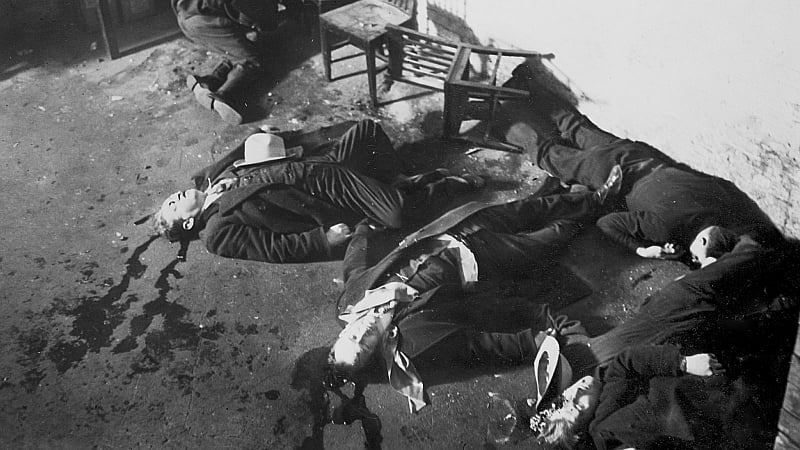
The government did, however, know that banning whole classes of firearms was Unconstitutional. Larosiere dug up then US Attorney General Homer S. Cummings’ testimony before the House Ways and Means Committee in 1934. When asked how the proposed Act “escaped” the Second Amendment, Cummings replied:
“Oh, we do not attempt to escape it. We are dealing with another power, namely, the power of taxation, and of regulation under the interstate commerce clause. You see, if we made a statute absolutely forbidding any human being to have a machine gun, you might say there is some constitutional question involved. But, when you say “We will tax the machine gun” and when you say that “the absence of a license showing payment of the tax has been made indicates that a crime has been perpetrated,” you are easily within the law.”
The questioning Congressman, Representative Lewis, then replied, “In other words, it does not amount to prohibition, but allows of regulation.” To which Cummings responded, “That is the idea. We have studied that very carefully.”
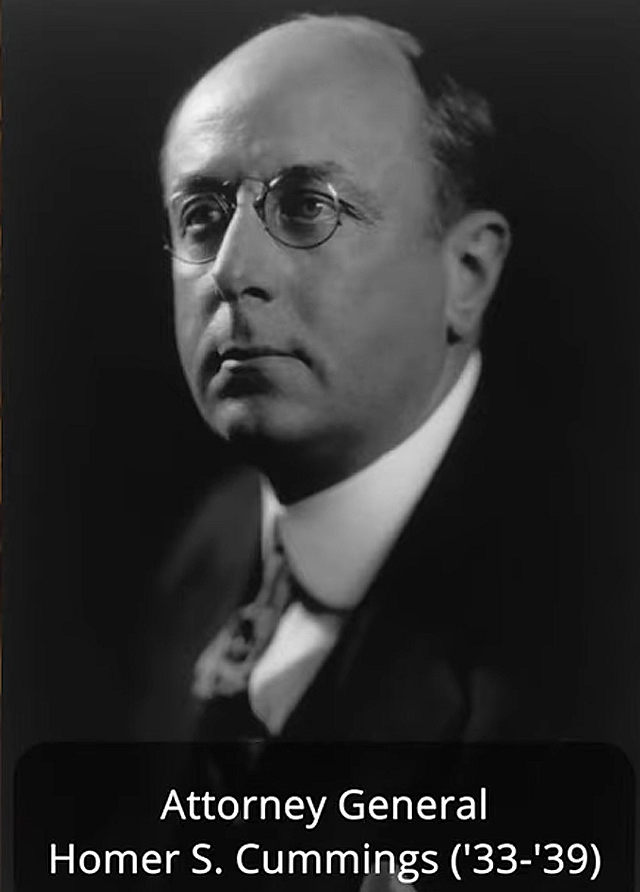
Cummings is admitting that a ban was Unconstitutional. Larosiere claims that “The prevailing…spirit behind everything they were doing was to get around the Constitution…to avoid it.” But, Constitutional or not, if Hoover didn’t pay the tax, how can he fight the charge? More on that in a moment.
A New Interpretation of the NFA
Zermay and Larosiere’s new motion invokes the recent Supreme Court Bruen Decision. Bruen now provides a clear standard by which to evaluate the NFA and the subsequent United States vs. Miller Decision of 1939. Bruen and Miller are available online if you care to read the decisions.
The motion specifically notes that Bruen requires the government to demonstrate a deep historical precedent for any gun laws, including the NFA. If there is no such history, the command clause of the Second Amendment, “the right of the people to keep and bear arms, shall not be infringed,” must be heeded. Since there was no historical precedent for banning whole classes of firearms, the NFA may be Unconstitutional under Bruen. We’ll have to see how that unfolds moving forward.
Defending Matt Hoover
As noted above, the point of the motion is defending Matt Hoover from what Zermay calls “bogus charges.” Bruen provides a means to attack the NFA’s Constitutionality to do that. The defense takes a two-pronged approach. First is a “facial challenge,” in which the entire statute is said to be Unconstitutional as it is written. Zermay and Larosiere’s motion asks for a dismissal based on that challenge. If the challenge is upheld and the dismissal granted, the case is over, and Hoover goes home. I’m not a lawyer, but I wonder whether a judge would be willing to dismiss, given he would be declaring the NFA Unconstitutional as part of the dismissal.
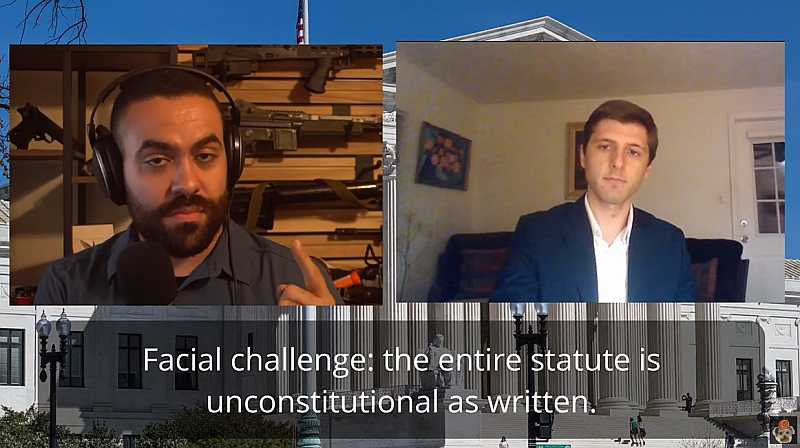
If the facial challenge fails, Hoover’s attorneys will fall back on an “as-applied challenge.” As the name implies, this means the law is Unconstitutional relating to Hoover’s particular case. If the court upholds this challenge, the ATF’s charges against Hoover are invalid as presented. I don’t know what would happen in that case.
Now, let’s return to the fact that Hoover never paid the tax before possessing his so-called “machine gun.” The defense’s argument points out that the 1986 revision of the 1968 Gun Control Act (GCA) effectively invalidated at least part of the NFA. The GCA banned the future sales of machine guns and required current machine gun owners to register their firearms.
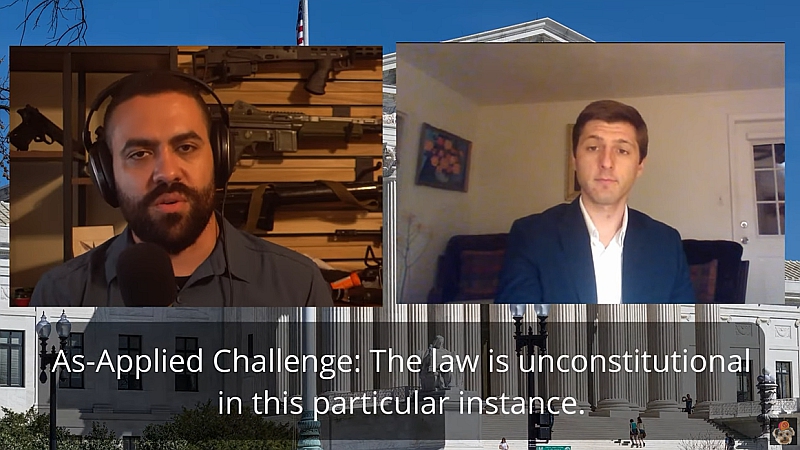
So, the NFA requires anyone buying a classified item to pay the tax. But the revised GCA disallowed payment for new “machine guns.” Matt Hoover is charged with possessing an unlawful machine gun under the NFA. Never mind that only the most zealous bureaucrat could call the auto keycard a machine gun. The ATF says he didn’t pay the tax, but the GCA’s 1986 revision prohibits him from doing so. That will make for an interesting argument.
What will happen?
No idea, but I expect an appeal no matter how the court rules. The appeals process is where the potential for striking down the NFA gets serious. Until then, it’s all about securing Matt Hoover’s acquittal. Of course, that will remain the primary goal in any appeal, but once the case starts up the appeals ladder, who can say where it will end up?
This case bears watching for several reasons. First and foremost, it’s about the ATF’s gross overreach and its persecution of a guy who didn’t do anything wrong until some unelected bureaucrats changed their minds. Second, it may provide an opportunity to rein in the ATF along the lines of the EPA. Third, it might shine a bright light on what Larosiere refers to as an “absolutely broken…system of laws,” namely, the National Firearms Act.
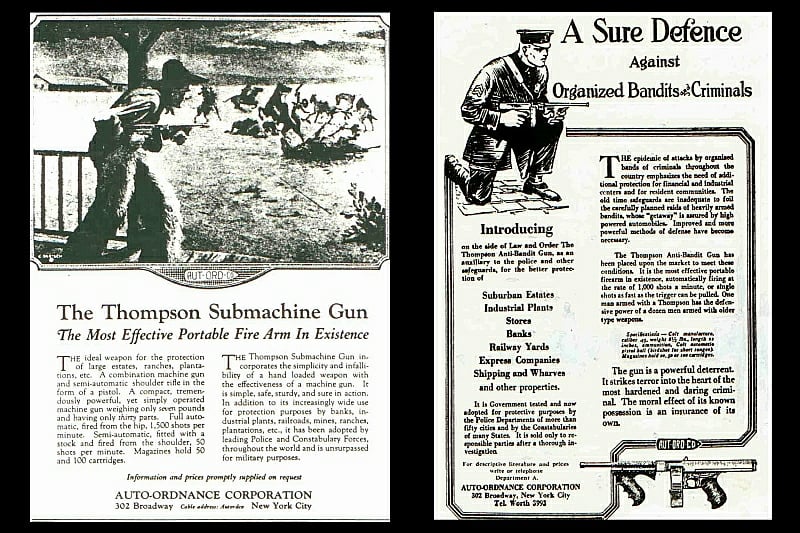
As with any legal proceeding, it will take time. So, don’t get excited about buying yourself a tax stamp-free suppressor for Christmas. It might happen one day, and this might be the first step, but it won’t be anytime soon. We’ll just have to watch and see.
Special thanks to Matt Larosiere and Zach Zermay for their informative video laying out the details of their new motion in Matt Hoover’s defense. It was an indispensable source.


